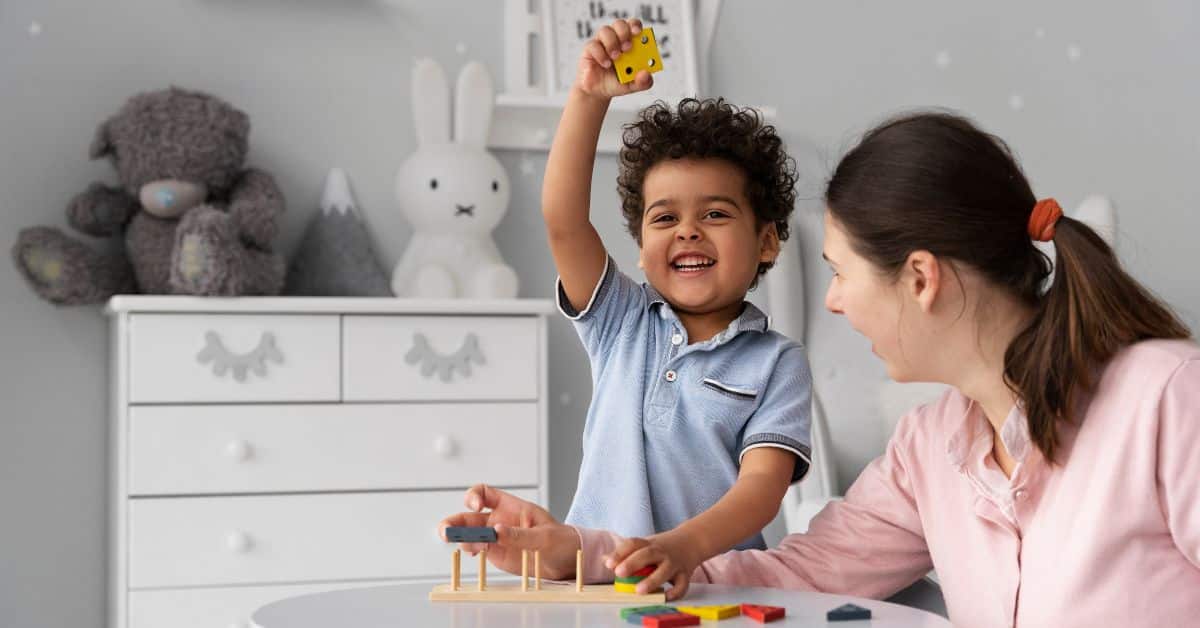As a parent, it’s natural to be concerned about your child’s development, especially when it comes to speech. At age 2, many children begin forming sentences and learning new words at an accelerating pace. But how do you know if your child is on track or if speech therapy might be needed? In this article, we’ll explore common signs that your child might need speech therapy, developmental milestones, and expert recommendations to help you make an informed decision.
What Are the Typical Speech Milestones for a 2-Year-Old?
Before assessing whether your child needs speech therapy, it’s important to understand what typical speech development looks like at this age. By age 2, children should be starting to use simple words and combining them into phrases. Here are some of the key milestones to expect:
-
Vocabulary growth: A 2-year-old may have a vocabulary of 50-100 words and might be able to say simple phrases like “want cookie” or “go park.”
-
Speech clarity: While pronunciation may not be perfect, most 2-year-olds should be able to say enough words for family members to understand.
-
Understanding and following directions: Children at this age can follow simple commands like “give me the ball” or “show me your shoes.”
It’s crucial to remember that every child develops at their own pace, but any significant delay in these areas may signal a need for further evaluation.
Signs That Your Child May Need Speech Therapy at Age 2
At age 2, some children may not meet the speech development milestones. If you’re concerned, here are some signs to look out for:
Limited Vocabulary and Communication
-
Fewer than 50 words: If your child isn’t using at least 50 words or isn’t making an effort to communicate with you using gestures or sounds, it could be a sign that speech therapy might be beneficial.
-
Lack of interest in communication: If your child doesn’t make eye contact, engage in simple conversations, or seems disinterested in interactive games like “peek-a-boo,” this might be another red flag.
Unclear Speech
-
Difficulty being understood: If your 2-year-old’s speech is unclear even to family members, it may be a sign of a speech delay or articulation disorder.
Delayed Social Interactions
-
Limited social engagement: At 2 years old, children usually begin engaging in social interactions, such as pointing to objects, making simple requests, or imitating others. If these behaviors are absent, it may indicate a delay in language development.
Difficulty Following Simple Directions
-
Inability to follow simple instructions: A typical 2-year-old should be able to follow basic commands like “sit down” or “give me the toy.” If your child struggles with understanding or responding to such commands, speech therapy could be beneficial.
What to Do If You Suspect Your Child Needs Speech Therapy?
If you recognize any of the signs mentioned above, it’s important not to panic but rather take proactive steps. Here’s what you can do:
-
Consult a Pediatrician: The first step is to talk to your child’s pediatrician. They can assess your child’s overall development and may refer you to a speech-language pathologist (SLP) for a more in-depth evaluation.
-
Speech Therapy Evaluation: A speech therapist will conduct a detailed assessment of your child’s speech and language skills. This may involve standardized tests, observation, and parent interviews to identify any concerns.
-
Early Intervention: Early speech therapy is often the most effective way to address delays. The therapist will work on exercises and strategies to help improve your child’s communication skills.
Early identification and intervention can make a significant difference in your child’s language development, so don’t hesitate to seek professional guidance.
How Speech Therapy Helps and What to Expect
Speech therapy for toddlers is a specialized process that can help children overcome delays and disorders. Here’s what you can expect from speech therapy:
Goals of Speech Therapy for 2-Year-Olds
-
Improve communication skills: The primary goal is to help your child use words and gestures to express themselves clearly.
-
Enhance social interaction: Speech therapists focus on improving a child’s ability to interact with peers and adults by practicing conversation skills and turn-taking.
Techniques Used in Speech Therapy
-
Play-based learning: Therapists often use play to engage children. This might involve games that encourage your child to say words, ask questions, or follow directions.
-
Articulation exercises: If your child is struggling with certain sounds, the therapist will use exercises to help improve pronunciation.
Speech therapy is tailored to your child’s needs and can significantly improve their ability to communicate effectively.
FAQs
1. At what age should my child start talking?
By age 2, most children should have a vocabulary of 50-100 words. However, some may develop language skills earlier or later. If there are concerns, it’s always a good idea to consult a pediatrician.
2. How can I encourage my 2-year-old to speak more?
You can encourage speech by talking to your child often, reading books together, asking open-ended questions, and giving them time to respond. Play is also a great way to encourage communication.
3. What if my child is speaking but still not clearly understood?
Difficulty being understood is a common concern, and it could be a sign of an articulation disorder. If your child’s speech is unclear, a speech-language pathologist can help with targeted exercises.
4. Can speech therapy help if my child is not speaking at all?
Yes, speech therapy can help children who are not speaking at all. Early intervention is key to developing language skills, and a speech therapist can work with your child on communication techniques.
5. How do I find a good speech therapist for my child?
Your pediatrician can provide recommendations, or you can search for licensed speech-language pathologists in your area. It’s important to choose someone experienced in working with toddlers.
Conclusion
In conclusion, identifying whether your child needs speech therapy at age 2 is important for their overall development. Early intervention can lead to better communication skills, improved social interactions, and greater success in school and beyond. If you’re concerned about your child’s speech development, don’t hesitate to consult with a professional who can help assess their needs and guide you toward the best solution.



